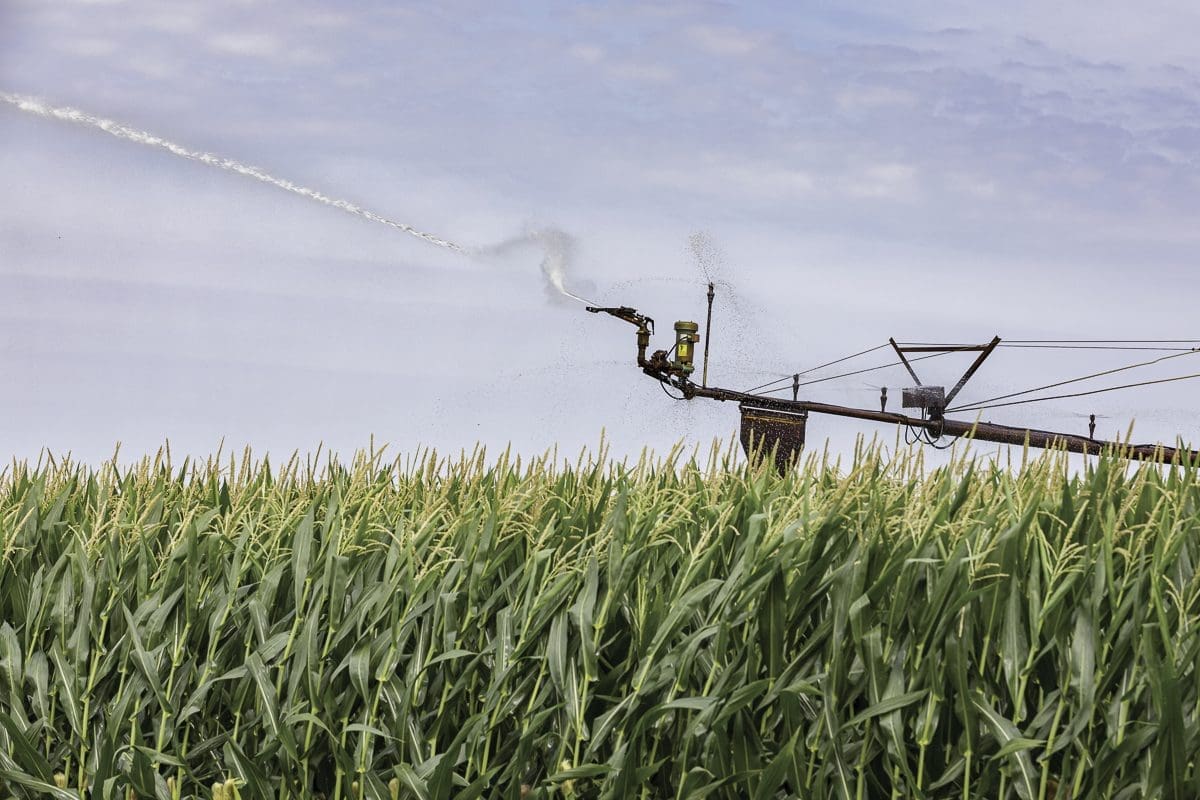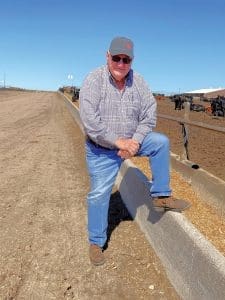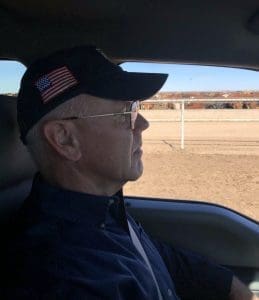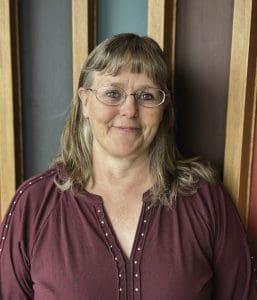By Blaine Davis Contributing Editor
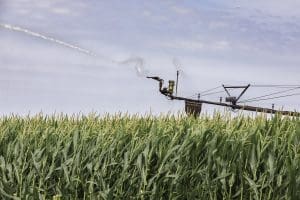
After a hectic day of reviewing a pile of blueprints and concluding with a construction site “walk-about,” I took respite at a familiar barstool. At the Tasting Room of the Boot Hill Distillery, I found a welcoming bartender and a subsequent refreshing cocktail. Shortly, I was joined by a fellow traveler searching for the same. A conversation soon ensued and, to my pleasure, my new acquaintance was from my alma mater, Kansas State University. Even more satisfying was Daran Rudnick migrating in the last month from our neighbor to the north, University of Nebraska, retiring his wardrobe of “Big Red” for that of “Royal Purple.” My question, “What brought you here?” I discovered he is the newly hired professor of biological and agricultural engineering, tasked with implementing a new program to the university, TAPS – Testing Ag Performance Solutions.
According to K-State Research and Extension News’ Pat Melgares, Rudnick was a key figure in creating the University of Nebraska TAPS program that has just completed its seventh year. With this background, the new assignment is to implement the program more fully in western Kansas, an agriculture-rich region threatened by dwindling water availability. As I wrote of in the past with a lecture to my young grandson in response to his teacher wanting to prohibit pumping the Ogallala Aquifer, that irrigation is essential to raising crops that feed him and the world and I, as an irrigated farmer, am concerned as well.
“Though irrigation is used on less than one-fifth of the farmland in the U.S., it has an outsized influence in supporting over approximately half of the total value of the nation’s crop sales,” stated Clint Evans, state conservationist for the U.S. Department of Agriculture’s Natural Resources Service in Colorado (NRCS). The NRCS has committed $2.91 million for the first year of the five-year agreement to expand the Master Irrigator and Testing Ag Performance Solutions (TAPS) programs. With the support of Lindsey Corporation, Colorado Corn and Colorado Master Irrigator, this multistate project will involve the collaboration of partners in Colorado, Kansas, Nebraska, Oklahoma and Texas, and will be hosted through Colorado State University (CSU) and jointly led by CSU’s Irrigation Innovation Consortium and Kansas State University’s Kansas Center for Agricultural Resources and the Environment.
As Rudnick and I further enjoyed our libations, he expounded more on the TAPS program as a competition for the multistate participants – the farmers in building their own support network.
“There is so much technology and so many management practices out there currently, that it’s really difficult to expect anybody to be able to introduce those in their own operation, whether it’s because of time or cost restraints,” stated Rudnick. TAPS facilitates several interactive, real-life farm management competitions aimed at profitability and efficient use of inputs. Producers who join the competition make major decisions for test plots they manage, but receive assistance from university researchers and Extension staff. The support network also includes industry leaders, agriculture students, government regulators and agency personnel.
“TAPS brings everybody together,” Rudnick said. “Industry can offer their solutions in a more controlled environment, which is easier for them.”
As a primarily corn producer and using wheat in crop rotation and water management, I asked him what contests he promotes.
“Currently, TAPS has six farm management competitions, including irrigated and dryland contests,” he said. “In 2023, crops studied included corn, sorghum, wheat and cotton. Truly, it becomes pretty fun.
“Everything is anonymous. We’re not trying to poke fun and say, ‘Wow, look at this person; they lost X amount per acre.’ It’s a protected safe space to go out there and try something that might not necessarily be comfortable doing otherwise. As a farmer, you can evaluate your existing practices and see how you benchmark against others who are competing. You can try a completely different approach, such as being a little more aggressive in a given area. Or maybe you want to pull off a selected hybrid that might be more drought-tolerant. So, farmers can really play around with no fear of failure.”
Each TAPS competition begins in March of each year with three awards: most profitable; highest input use efficiency; and greatest grain yield. Cash awards are given to the top three in each category.
As the afternoon was ebbing with evening approaching and our glasses nearing empty, we bid each other a farewell and I added an EMAW (Every Man A Wildcat). Rudnick left me with a final thought. “In a lot of ways, TAPS embodies the excitement I have in coming to K-State. I’m an irrigation engineer by training, but the exciting part is in recognizing that I’m just one piece to the larger puzzle, and being able to work with other experts, stakeholders, producers and agencies – who are all trying to improve and understand the system – is exciting.”
As I drove west, I too became excited to include a newcomer to the K-State family and for that of TAPS, not the melancholy tune of military funerals but that of new agriculture solutions.

